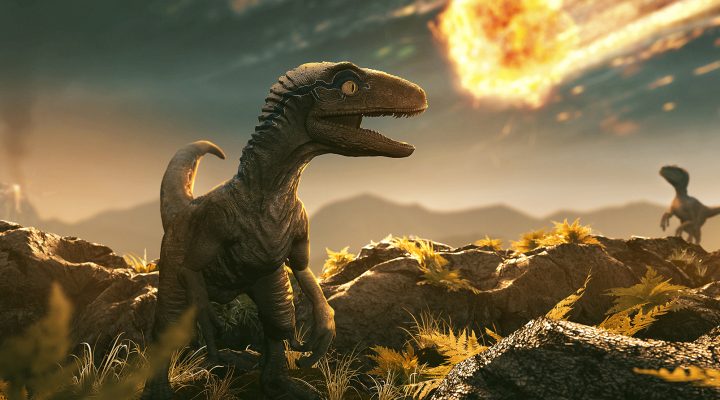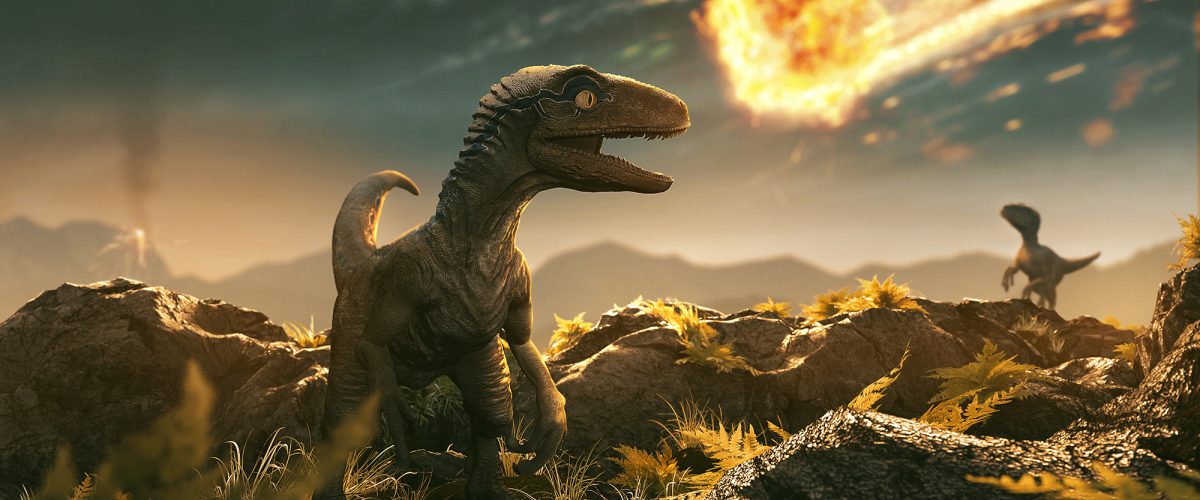If I were not a pastor, my life would look very, very different. In fact, after I graduated with an undergraduate degree in anthropology, I had two options to consider: one of my professors encouraged me to apply for an internship at the St. Louis Zoo to work with chimpanzees and bonobos, and the other option was to attend seminary.
I like to think I chose to work with the more challenging primates.
I still love science and read nerdy books to feed that part of myself. Recently I read The Rise and Reign of the Mammals by the paleontologist Steve Brusatte, who teaches at the University of Edinburgh. Brusatte is a world-famous expert on dinosaurs (he was one of the scientific advisers for the Jurassic World films), but over the past few years his interests have shifted from dinosaurs to prehistoric mammals. As I read Brusatte’s book, I could not help but make some connections between the development of mammals and the place churches find themselves in now.

Tyler Tankersley
We mammals are nothing if not resilient. While Tyrannosaurus Rex and Triceratops battled one another in the late-Cretaceous, the small, rat-like Litovoi was avoiding becoming a snack. In fact, mammals survived the dinosaur-dominated world of the Mesozoic Era by being small creatures who could hide from larger predators.
But on that fateful day 66 million years ago when a six-mile-wide asteroid crashed into the Yucatan Peninsula in Mexico, everything changed. As burning ash rained down upon the earth and plumes of smoke blocked out the sun, 75% of all species on planet earth were killed. And in addition to the giant dinosaurs, the carnage also nearly brought on the end of mammals. Only 7% of mammalian species survived this mass-extinction event.
Walter Brueggemann has written that the job of a religious leader is to offer three things: reality, grief and hope. Obviously, we need always to end with words of hope as we walk with people through their grief, but the starting place has to be the defining of reality.
“The Christian church is currently experiencing a mass extinction event.”
A reality that is readily apparent to anyone paying attention is this: The Christian church is currently experiencing a mass extinction event. A recent study found that in 2019 there were 3,000 new congregations started but 4,500 churches closed their doors. The pace of starting new churches is not keeping up with the closing of congregations, and it hasn’t for some time.
We all can cling to isolated anecdotes about churches that are thriving (and that is worth celebrating) but those exceptions prove the rule. And we all know that COVID-19 has accelerated that congregational extinction at an alarming rate.
So, how did the mammals survive? Brusatte writes, “The Paleocene (the period directly after the Cretaceous) were smaller than most of the Cretaceous mammals, and their teeth indicate that they had generalist, omnivorous diets.” Mammals survived because they clung to a variety of factors that led them to thrive: they were smaller, they could hide easily, and they had a varied diet. And because of all these attributes, they eventually evolved into car-sized armadillos, woolly mammoths, gargantuan blue whales, Australopithecus, and eventually, us.
Survival through this period of church decline is going to require evolutionary creativity. Not all things are going to work (and not all evolutionary adaptations are successful; just ask Giant Pandas). Evolution is constantly throwing mashed potatoes against the wall just to see what may or may not stick. However, refusal to evolve is not an option. And please do not misunderstand me: This is not an appeal to completely change music styles, to drop denominational affiliation, or any other such bedrock-identity changes. Instead, churches must be willing to reimagine what it means to be a community.
“Survival through this period of church decline is going to require evolutionary creativity.”
Although we are in the midst of a hard reality in church life, I see so many signs of hope. When I see what churches are doing and how my fellow pastors are leading them, it fuels my own creativity and optimism. Like early mammals, I see churches experimenting with smaller expressions of faith that are adaptive to new environments and forming diverse relationships in their community.
I recently read of a congregation providing the security for their local bookstore’s Drag Queen Story Time, even though that church holds a traditional, conservative view of marriage. Churches are experimenting with combatting payday loan lenders by providing small, interest-free loans to their community while others are paying off medical debt to free people from reliance on a broken health care system. And many churches during the pandemic expanded their ideas of what constitutes their congregation to include those joining them online.
But churches also have to be willing to embrace changes that might be uncomfortable. Many people are not interested in the territorial disputes that exist between denominations and even other faiths; churches must evolve to engage in interfaith community and collaboration.
People are seeking communities of faith that are not merely sanctuaries away from the world, but ones that are willing to engage in brave conversations about what it means for faith to be active within the public square.
People are scrambling for churches that have an awareness of the crises facing us: climate change, rising bouts of depression, an epidemic of gun violence, and a myriad of other issues.
“People are not looking for easy answers and platitudes, but they are looking for communities that offer hope infused with realism.”
People are not looking for easy answers and platitudes, but they are looking for communities that offer hope infused with realism. In other words, they are looking for the good news that asserts all people are made in the image of God, that we are not alone when we are in life’s valleys, that weapons of war will be transformed into tools to feed others, and that one day God shall make all things new.
At the end of his book, Brusatte asserts that we Homo sapiens do have one feature that sets us apart from every other mammal: “Evolution endowed us with big brains and the ability to cooperate in groups. We know what we are doing to our planet, and we can work together to come up with solutions. The mammoths and sabertooths and millions of other extinct mammalian cousins never had the same powers, either to alter the world or to ameliorate it. We do.”
What are we called to do with this God-given awareness?
We do what we always have done. We evolve.
Tyler Tankersley serves as senior pastor of Ardmore Baptist Church in Winston-Salem, N.C. He is a graduate of Central Baptist Theological Seminary.
Related articles:
Young adults say churches key in battle against climate change, poverty and corruption
Pandemic has accelerated needed changes in churches, panelists report
Largest-ever U.S. congregational survey confirms what church consultants have been telling you


